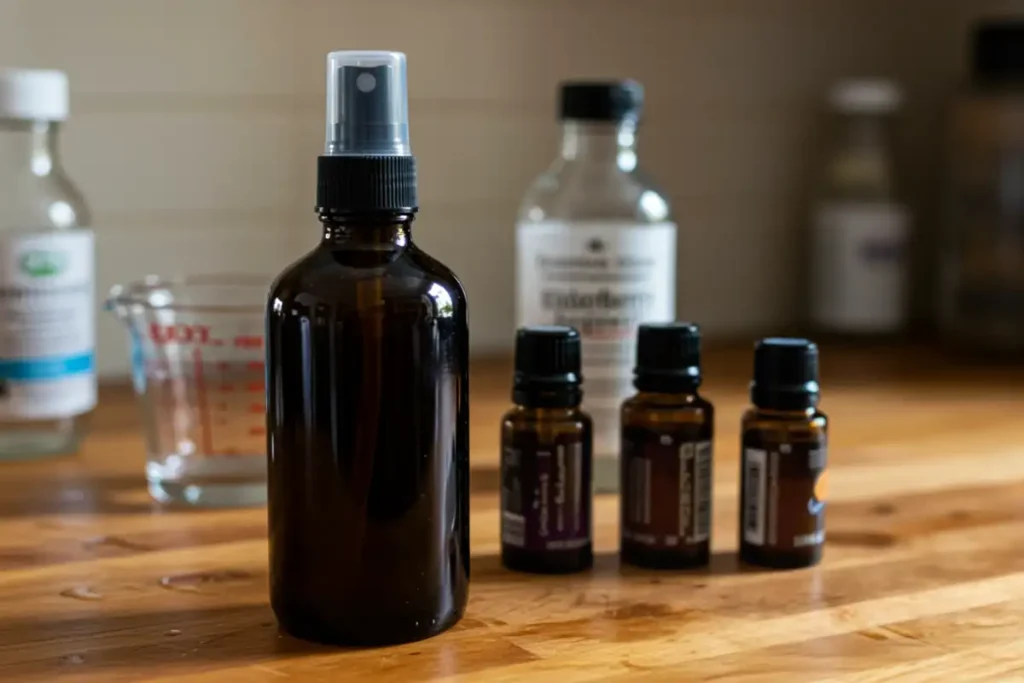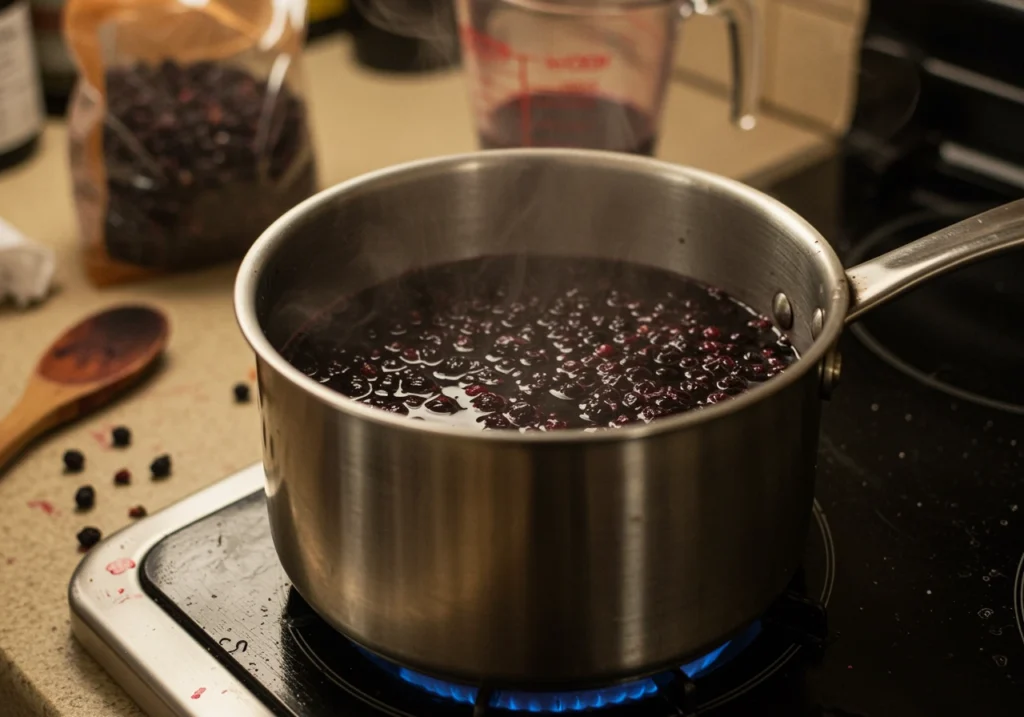Tired of those harsh, chemical-laden bug sprays that leave you feeling sticky and smelling like a laboratory experiment? Yearning for a more natural and eco-friendly way to keep those pesky mosquitoes, ticks, and biting flies at bay? Then it’s time to discover the magic of French elderberry bug spray recipe!
This isn’t just another trendy DIY concoction. We’re talking about a time-honored herbal remedy, passed down through generations in France, that harnesses the power of elderberries and essential oils to create a potent and pleasant-smelling insect repellent. Forget the DEET and embrace the natural goodness of elderberries! We’ll walk you through the steps to create your own french elderberry bug spray recipe, explore the science behind its effectiveness, and share tips for using it safely and responsibly. Get ready to ditch the chemicals and embrace a bug-free summer, the natural way!
The Allure of Elderberry: More Than Just a Delicious Berry
You might know elderberries for their immune-boosting properties, often used in syrups and lozenges to fight off colds and flu. But these tiny dark berries have another secret weapon: they’re a natural insect repellent!
Elderberries contain compounds that deter insects, including:
- Tannins: These bitter compounds act as a natural deterrent for many insects.
- Flavonoids: These antioxidants have insect-repelling properties and can also benefit the skin.
- Essential Oils: Elderberries contain small amounts of essential oils that contribute to their insect-repelling scent.
While the exact mechanism isn’t fully understood, it’s believed that these compounds work together to disrupt insects’ ability to find and feed on humans. Plus, unlike harsh chemicals, elderberries are generally safe for the skin and the environment.
To learn more about the impressive benefits of elderberries and why they’re such a powerful natural remedy, check out this article from Healthline. Their rich history and versatility make them a cornerstone of herbal remedies.
French Elderberry Bug Spray Recipe: A Simple DIY Guide
This recipe combines the power of elderberries with the added benefits of essential oils to create a potent and effective bug spray. Feel free to adjust the essential oils to your liking.
Yields: Approximately 2 cups
Prep time: 15 minutes
Cook time: 20 minutes
Ingredients:
- 1 cup dried elderberries (or 2 cups fresh elderberries)
- 2 cups distilled water
- 1/2 cup witch hazel or vodka (acts as a preservative)
- 10 drops lavender essential oil
- 10 drops lemongrass essential oil
- 10 drops eucalyptus essential oil
- 5 drops tea tree oil
- 2 tablespoons aloe vera gel (optional, for moisturizing)
- 2 tablespoons apple cider vinegar (optional, for enhanced bug-repelling properties)
Equipment:
- Saucepan
- Fine-mesh strainer or cheesecloth
- Dark-colored spray bottle
- Measuring cups and spoons
Instructions:
- Boil Elderberries: In a pot, combine the dried elderberries and distilled water. Bring to a boil, then reduce heat and simmer for 20 minutes.
- Strain the Liquid: Use a fine-mesh strainer or cheesecloth to separate the liquid from the berries. Discard the berries and keep the infused liquid.
- Add Preservatives and Oils: Mix in the witch hazel or vodka for preservation. Stir in the lavender, lemongrass, eucalyptus, and tea tree essential oils. Add the aloe vera gel and apple cider vinegar, if using.
- Store in a Spray Bottle: Pour the mixture into a dark-colored spray bottle. Shake well before each use.
Tips and Tricks for Maximizing Effectiveness
Here are some tips to help you get the most out of your french elderberry bug spray recipe:
- Use Distilled Water: This will help to prevent bacteria growth and extend the shelf life of the spray.
- Choose High-Quality Essential Oils: Opt for pure, therapeutic-grade essential oils for the best results.
- Store in a Dark Bottle: This will help to protect the essential oils from breaking down in the sunlight.
- Shake Well Before Each Use: This will ensure that the ingredients are properly mixed.
- Reapply Frequently: Reapply the spray every 2-3 hours, especially if you are sweating or swimming.
Beyond Elderberry: Exploring Other Natural Repellents
While elderberry is a fantastic base for a natural bug spray, there are many other plant-based ingredients that can help to repel insects. Here are a few to consider:
- Citronella: A classic insect repellent with a fresh, citrusy scent.
- Lemongrass: A strong insect deterrent with a bright, lemony aroma.
- Eucalyptus: Effective against ticks and other biting insects.
- Peppermint: Repels mosquitoes, ants, and spiders.
- Lavender: Soothes the skin and repels mosquitoes.
- Tea Tree: Has antibacterial and antifungal properties and repels insects.
You can experiment with different combinations of these ingredients to create a custom bug spray that’s perfectly tailored to your needs and preferences.
For more information on how these oils work and which ones are most effective against specific pests, visit this guide from Gardening Know How . You can experiment with different combinations of these ingredients to create a custom bug spray that’s perfectly tailored to your needs and preferences.
Safety Considerations: A Word of Caution
While natural bug sprays are generally safer than chemical repellents, it’s still important to take some precautions:
- Do a Patch Test: Before applying the spray to large areas of skin, do a patch test on a small area to check for any allergic reactions.
- Avoid Contact with Eyes and Mouth: Essential oils can be irritating to the eyes and mouth.
- Not Recommended for Pregnant Women: Some essential oils are not recommended for use during pregnancy.
- Keep Out of Reach of Pets: Some essential oils can be toxic to animals.
- Not a Substitute for Other Precautions: Use bug spray in conjunction with other preventative measures, such as wearing long sleeves and pants, avoiding areas with high insect populations, and using mosquito netting.
Always prioritize safety when using any type of insect repellent, natural or chemical.
Answering Your Bug Spray Questions
Let’s address some common questions about natural bug sprays and their effectiveness:
What is the best homemade bug spray?
The best homemade bug spray is one that combines multiple insect-repelling ingredients, such as essential oils and plant extracts.
What essential oil mix is best for bug repellent?
A popular and effective essential oil mix includes lavender, lemongrass, eucalyptus, and tea tree oil.
How do you make boxelder bug spray?
Boxelder bugs are a nuisance.
What is the ratio of peppermint oil to water for bug spray?
A common ratio is 10-15 drops of peppermint oil per cup of water.
Your Natural Bug-Repelling Journey Awaits: Embrace the Outdoors!
French elderberry bug spray recipe offers a safe and effective option to stay away from chemicals. So, gather your ingredients, get mixing, and get ready to enjoy the great outdoors – bug-free!


